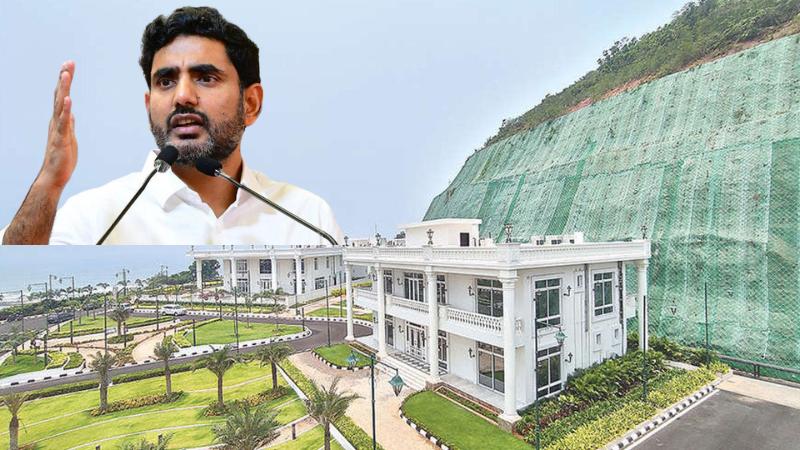
- galaxy
- 14 Nov 2024 07:47 AM
- Lokesh, Rushikonda palace, TDP vision, Jagan
N. Lokesh, the IT Minister of Andhra Pradesh, took a direct shot at YS Jagan Mohan Reddy’s approach to decentralization during his speech in the state assembly. Lokesh mocked Jagan’s vision, claiming that the construction of a palatial building with an extravagant budget of Rs 500 crore hardly aligns with the concept of decentralization. He said, "Building a palace does not reflect true decentralization; it is a misuse of public funds for personal gain."
Lokesh’s comments came in the context of recent reports and controversies surrounding the construction work on Rushikonda hill, where a massive structure has been built. While the building’s purpose has been unclear, critics, including the TDP and Jana Sena, raised concerns about the lavish expenditure and the highly expensive fittings. For instance, it has been reported that a bathroom tub costs around Rs 36 lakh, a commode around Rs 12 lakh, and chandeliers worth lakhs of rupees.
During his recent visit to Visakhapatnam, Jagan described the Rushikonda Palace as a "colossal affair," suggesting its significance. However, Lokesh insinuated that the palace seems to have been constructed for Jagan’s personal use, rather than serving the public or the state’s development.
Lokesh, who is the son of former Chief Minister N. Chandrababu Naidu, went on to emphasize that his father’s vision for decentralization was about spreading development and resources evenly across the state, not about extravagant personal projects. He explained how, under Chandrababu Naidu’s leadership from 2014 to 2019, the focus was on creating opportunities across various districts of Andhra Pradesh. Key projects were set up in backward regions like Anantapur, Kurnool, Chittoor, and Kadapa to generate employment and boost local economies. For instance, Kia Industries in Anantapur provided thousands of jobs, and renewable energy projects were established in Kurnool.
Additionally, the TDP government worked to ensure that industries such as electronics manufacturing, wind turbines, pharma units, and aquaculture were distributed across North Andhra and the Godavari districts. Lokesh also pointed out that Central government-sponsored educational institutions were fairly allocated across the state, contributing to the decentralization process.
Lokesh reiterated that true decentralization meant distributing wealth, creating employment opportunities, and developing infrastructure throughout the state, not concentrating resources in one location for personal gain. He praised his father’s visionary leadership and promised that with Naidu at the helm, Andhra Pradesh could look forward to a prosperous and well-balanced future.
This ongoing political drama between the ruling YSR Congress Party (YCP) and the opposition TDP has now focused on the issue of how decentralization is being defined and implemented in Andhra Pradesh. As the controversy surrounding the Rushikonda Palace intensifies, both parties continue to present starkly different visions for the state’s development.







































